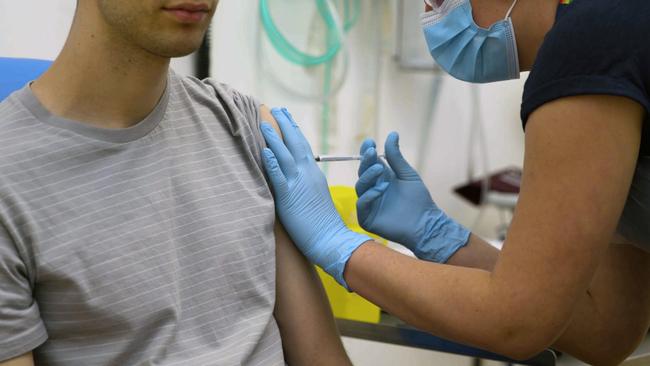Coronavirus: Oxford vaccine fails animal trials
An analysis of the Oxford University coronavirus trials has revealed that the test vaccine failed to stop coronavirus in animals.

A world-leading scientist analysing the Oxford University coronavirus trials, which had been mooted as the most promising prospect to provide a vaccine by the end of the year, has revealed that the test vaccine failed to stop coronavirus in animals.
In a surprise revelation, the Oxford trial vaccine in rhesus macaque monkeys did not stop them from getting coronavirus, although there may be some effectiveness in stopping the severity of the disease.
The findings have been revealed by the former head of Harvard University medical school, Dr William Haseltine, after he analysed the substantiating data underpinning the vaccine in the Oxford trial (an adenovirus vector-based vaccine that carries the SARS-CoV-2 spike protein), which was released late last week.
He said in an article in Forbes magazine published on Monday that the Oxford vaccine data raises questions as to why the vaccine trial was still continuing with human trials.
The early results are disappointing as the world had hoped that the vaccine, known as ChAdOx1 nCoV-19, would be able to stop the coronavirus in its tracks.
The British government had just last week announced a $150m project in conjunction with Astra Zeneca to manufacture 30 million doses of the Oxford vaccine in the hope that it would be effective and could be distributed as soon as the human trials, which started several weeks ago, were completed.
But Dr Haseltine wrote: “All of the vaccinated monkeys treated with the Oxford vaccine became infected when challenged as judged by recovery of virus genomic RNA from nasal secretions.
“There was no difference in the amount of viral RNA detected from this site in the vaccinated monkeys as compared to the unvaccinated animals. Which is to say, all vaccinated animals were infected.”
He added that there was a second “troubling result” of the Oxford paper. This was that the inhibition of virus replication by successive serum dilutions is extremely low.
He explained: “Typically, neutralising antibodies in effective vaccines can be diluted by more than a thousand-fold and retain activity. In these experiments the serum could be diluted only by four to 40-fold before neutralising activity was lost.”
He compared the Oxford vaccine unfavourably with the Sinovac vaccine trial, which he said showed complete protection of rhesus monkeys by their vaccine candidate, whole inactivated SARS-CoV-2 virus particles.
He said it was “crystal clear” the Oxford vaccine did not provide sterilising immunity to the virus challenge, “the gold standard for any vaccine’’.
Dr Haseltine added: “It may provide partial protection. The question then becomes: ‘Will partial protection be enough to control the COVID-19 pandemic?’ That is an open question. For an answer we can look to other diseases for which only partially effective vaccines exist — HIV, tuberculosis and malaria. The answers are not encouraging, except perhaps for the protection of childhood malaria.’’
But the Oxford researchers have continued to promote their trials as the best chance of providing a vaccine and have received tens of millions of pounds in emergency funding.
Only last week Adrian Hill, director of the Jenner Institute at the University of Oxford, spoke about having a million doses ready by September once the vaccine efficacy tests are completed.
“Then we’ll move even faster from there, because it’s pretty clear that the world is going to need hundreds of millions of doses ideally by the end of the year to end this pandemic and let us out of lockdown safely,’’ he said.
Another researcher on the Oxford trial, Sarah Gilbert, has repeatedly said: “I think it has a very strong chance of working.”




To join the conversation, please log in. Don't have an account? Register
Join the conversation, you are commenting as Logout